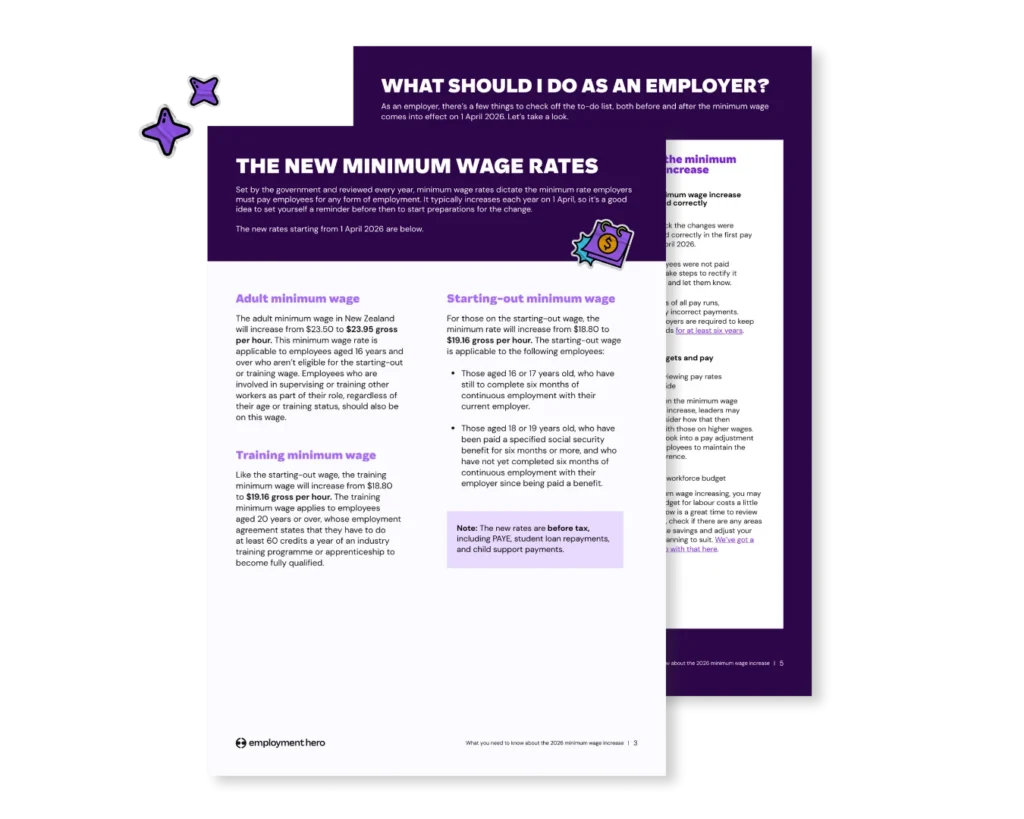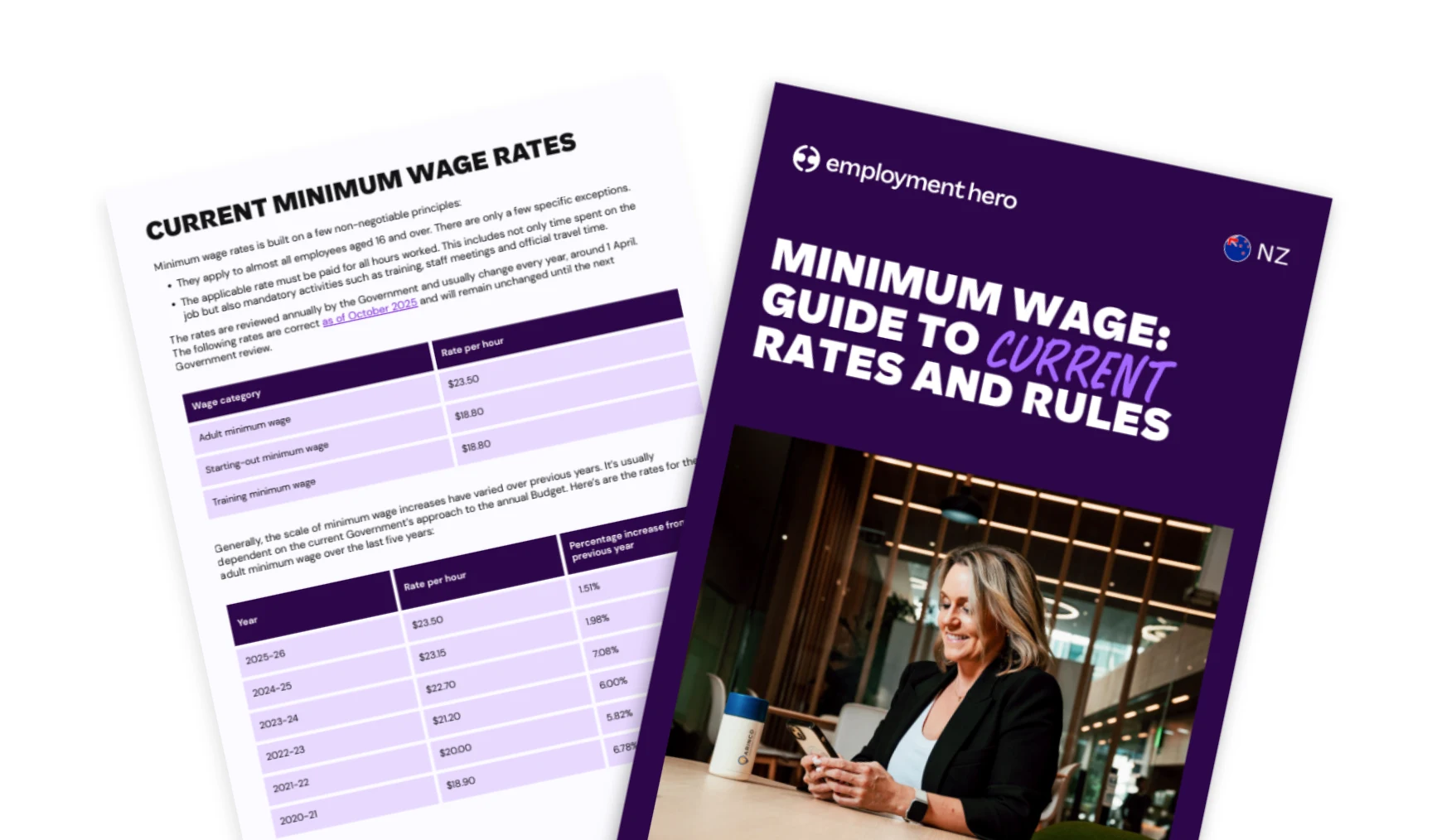What you need to know about the 2026 minimum wage increase
Published
What you need to know about the 2026 minimum wage increase
Published
Whether you’re running a busy factory floor, a boutique café or a busy restaurant, the upcoming minimum wage rate increase on 1 April 2026 applies to many Kiwi employers.
To make things a little bit easier, we’ve compiled all the information you need to know in our guide. That includes:
- The new rates for all minimum wage types
- How they’re applied in practice
- The key steps you need to take as an employer
Download the guide by filling in the form on the right.

The information in this article is current as at 22 January 2025, and has been prepared by Employment Hero Pty Ltd (ABN 11 160 047 709) and its related bodies corporate (Employment Hero). The views expressed in this article are general information only, are provided in good faith to assist employers and their employees, and should not be relied on as professional advice. Some information is based on data supplied by third parties. While such data is believed to be accurate, it has not been independently verified and no warranties are given that it is complete, accurate, up to date or fit for the purpose for which it is required. Employment Hero does not accept responsibility for any inaccuracy in such data and is not liable for any loss or damages arising directly or indirectly as a result of reliance on, use of or inability to use any information provided in this article. You should undertake your own research and seek professional advice before making any decisions or relying on the information in this article.
Register for the guide
Related Resources
-
 Read more: Minimum wage: Guide for New Zealand employers and payroll teams
Read more: Minimum wage: Guide for New Zealand employers and payroll teamsMinimum wage: Guide for New Zealand employers and payroll teams
Understand NZ’s minimum wage rates, training wage rules, and 2025 updates. Learn how Employment Hero NZ automates wage compliance.






















